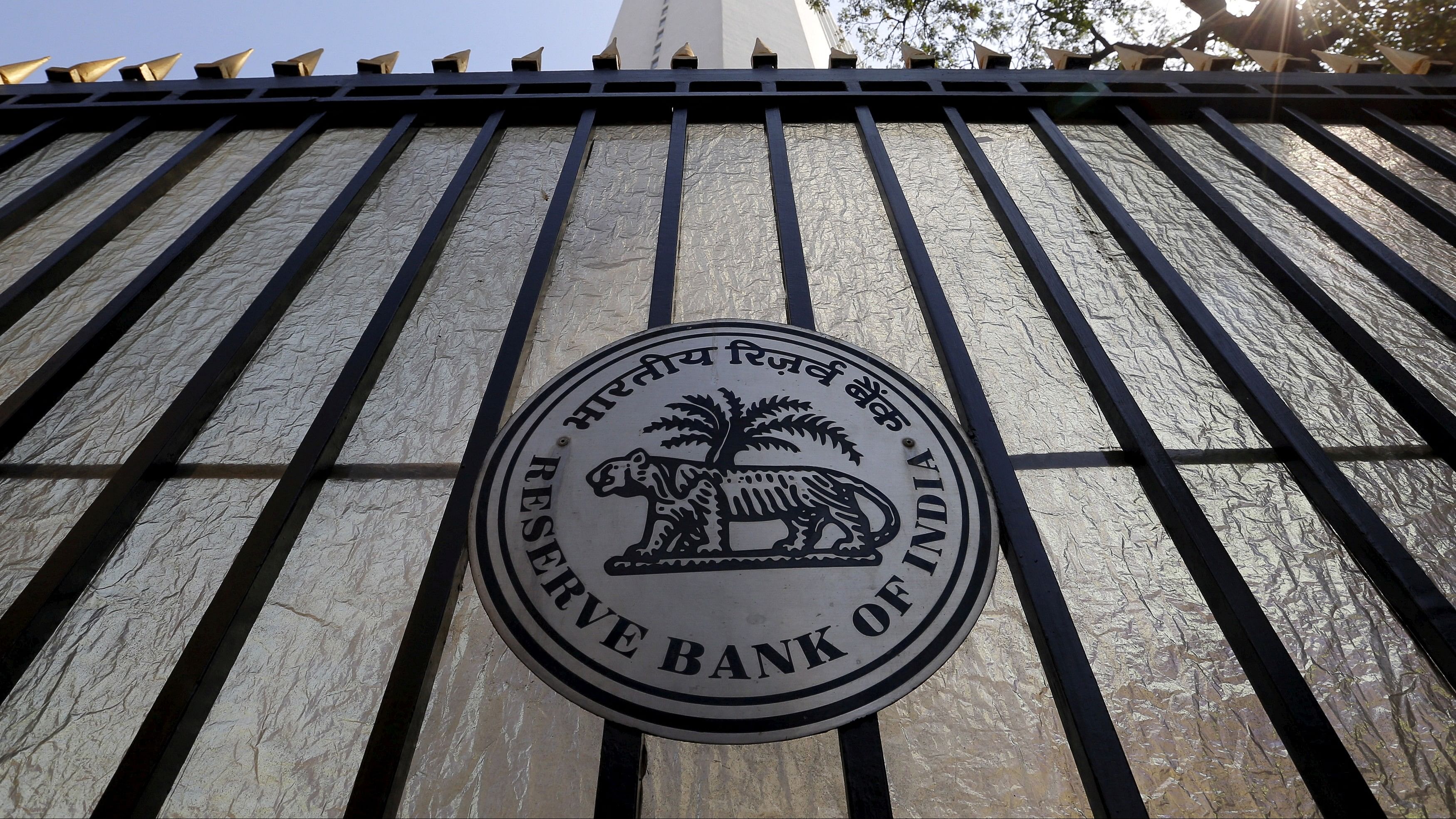
Reserve Bank of India logo.
Credit: Reuters Photo
The unanimous decision of the six-member Monetary Policy Committee (MPC) of the Reserve Bank of India (RBI) to maintain the policy rate/repo rate (the rate at which the banks borrow from the RBI) unchanged at 6.5%, despite the rise in food and cereal inflation, and the 5:1 majority decision to
continue the ‘withdrawal of accommodative’ stance, was as expected.
The MPC has adopted a ‘wait and watch’ approach by significantly raising the CPI inflation forecast to 6.2% for July-September 2023 (Q2FY24) from 5.2% and for October-December 2023 (Q3FY24) from 5.4% to 5.7%. This is because the spike in vegetable inflation is expected to be temporary and stabilise by January 2024.
The cycle of rate increases was paused in April after six consecutive rate hikes, totaling 250 bps since May 2022. The transmission of these rate hikes to housing loans by banks and Housing Finance Companies (HFCs) is still ‘working through’.
In a surprising policy announcement, RBI Governor Shaktikanta Das has urged banks to immediately establish a policy framework for the reset of interest rates on floating/variable interest rate loans to ensure transparency regarding the rules for resetting their existing home loans (including tenor/EMI), reset fees, frequency of reset linked to external rate benchmarks (repo rate/prime lending rate of HFCs), and options for switching to fixed-rate loans. This move seeks to create a level playing field
in the market and prevent loan ‘poaching’ by financial institutions, thus ensuring customer protection.
This is positive news for home loan borrowers, given that banks and HFCs have sharply increased their housing loan rates since the beginning of this calendar year. The historically low home loan interest rates, which were in the range of 6–6.5% a few months ago, have now risen to a bandwidth of 8.4%–12%.
Many banks/HFCs tend to extend the ‘tenure’ of the loans to keep the EMI constant. This has led to instances where borrowers’ ages extend beyond retirement, up to 70 or 75 years, causing concerns about repayment capacity.
During a press conference, the RBI Governor mentioned that the task of framing guidelines for loan ‘reset’, tenure elongation limits, options, and fees would be presented to the respective Boards of banks/HFCs.
It will be interesting to
see how the RBI communicates with banks on this
matter. given that each bank/HFC already has an existing ‘reset’ policy.
Perhaps the RBI will set a ceiling limit on tenure elongation and ‘reset ‘fees to ensure that the banks/HFCs’ software AI does not automatically determine the loan tenures that extend beyond 70 years of the borrowers’ age, particularly among certain salaried/business-class borrowers.
While new borrowers can access rates from 8.25%, depending on their profile and a CIBIL score above 750, the main concern lies with existing borrowers who obtained housing loans 3-5 years ago. For them, interest rates under the variable rate scheme would have increased to the range of 10.5%–13%. Such borrowers should take advantage of the RBI Governor’s announcement and consider the following options:
Option 1: To opt for a ‘reset’ of the interest rate with the existing bank/HFC itself. This saves time and avoids the hassles of ‘rate shopping’, filing new applications, dealing with processing fees, and addressing fresh CIBIL issues. Most banks/HFCs offer a ‘reset route’ and provide a reduced rate advantage with a nominal “reset fee” for existing borrowers with a prompt repayment track record. However, this may not match the new rates of 8.25%–9%.
Option 2: Existing borrowers with a loan tenure of 10–25 years and a proven 5-year track record of excellent repayment should consider shifting their loans to banks offering the best interest rates in the range of 8–9.5%. This move not only saves a significant interest component but also avoids pre-closure charges as directed by the RBI/National Housing Bank. Even the existing property insurance assigned to a bank/HFC can be transferred
to the new ‘takeover’ institution, or a pro-rata premium can be refunded.
Option 3: Risk-averse borrowers, who prefer allocating a fixed amount of their salary/business income towards EMIs, can choose a ‘fixed rate, yearly, or 2-year reset product. This product not only offers the current best rate
but also undergoes ‘annual
reset’ with interest rates adjusted based on prevailing market conditions at that time. Many banks/HFCs provide this loan product.
With the festive season approaching from September onwards, most banks and HFCs are likely to offer fresh loans with ‘zero’ processing fees and takeover loans from other institutions with additional ‘top up’ options. These funds can be used to pay off other high-interest liabilities.
Borrowers of home loans and other products should capitalise on the Governor’s announcement and carefully consider the best loan option for their situation.
(The writer is a former banker)